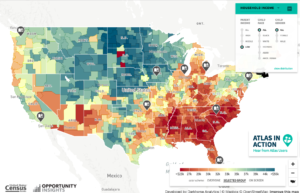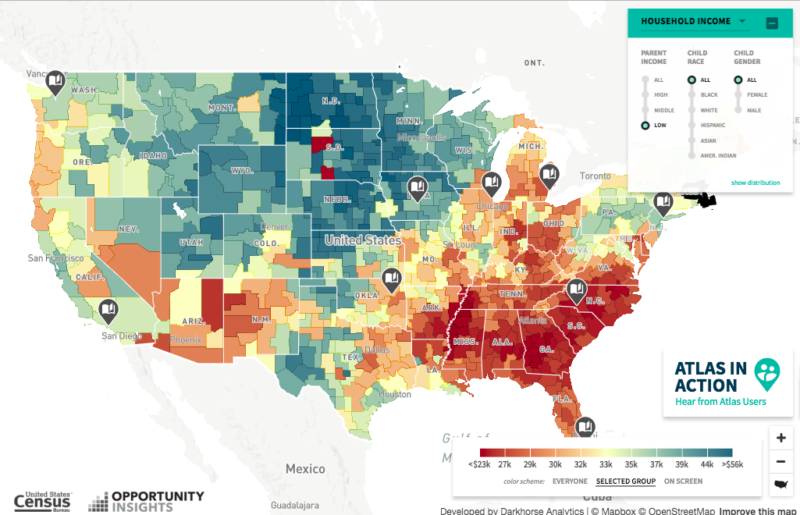There is no American Dream without the possibility of upward economic mobility. Education is, at its core, about preparing young people to succeed in a life to which they aspire, which is almost always at least as fruitful, if not more so, than that of their parents.
Today, that dream is more remote for more Americans than at any time in the last 70 years. This is the quasi-hidden national tragedy in which we are currently embroiled. It has been subsumed by other elements of social identity politics. Either knowingly or unknowingly, large numbers of Americans have given in to the notion that upward economic mobility is less important than, or inconsistent with, other of their core values.
 I argue that, without a drastic change in what The Opportunity Atlas tells us, America cannot hope to sustain its position as the moral, social, and economic leader of the world. And, such lack of dream-like potential may ultimately lead to a second great American schism, between haves and have-nots, or between those who care about this and those who don’t. Some argue that America in the 21st century is immune to such schism; that argument ignores every objective lesson of human history and relies instead on faith in a divine safety net specially woven just for America.
I argue that, without a drastic change in what The Opportunity Atlas tells us, America cannot hope to sustain its position as the moral, social, and economic leader of the world. And, such lack of dream-like potential may ultimately lead to a second great American schism, between haves and have-nots, or between those who care about this and those who don’t. Some argue that America in the 21st century is immune to such schism; that argument ignores every objective lesson of human history and relies instead on faith in a divine safety net specially woven just for America.
I urge educators to use this highly interactive Atlas as a learning tool. Let your students dig in and find projects and questions that they find relevant. There is work here for social studies, science, programming, language, and math classes. These are real data, untethered from selfish agendas across the political spectrum. For those of you who live and teach in areas of extreme immobility, empathetic learning demands that your students are free to ask “why?” For those living in areas with greater mobility, you have an opportunity to engage your students in questions of “how” to bring about positive change.
The only really wrong way to use these data are to ignore them, in which case the American Dream is surely dead.












Leave A Comment